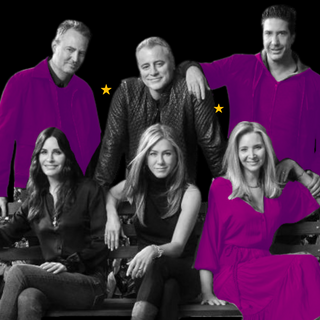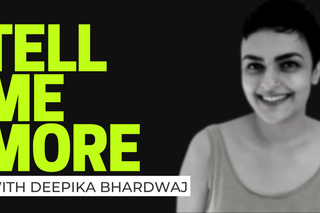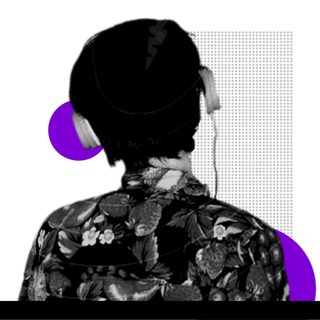
Tell Me More: Talking Accountability and Transformative Justice with Deepika Bhardwaj
“The way that we’re made to confront our role in oppressive structures feels threatening because it feels personal and punitive.”

In The Swaddle’s interview series Tell Me More, we discuss crucial cultural topics with people whose work pushes societal boundaries.
Deepika Bhardwaj (she/her) is a queer anti-violence organizer interested in restorative and transformative justice work rooted in an abolitionist praxis and focused on building meaningful and accountable relationships within our communities. Deepika initiated Alternative Justice in 2020 to work towards building community-based and anti-carceral spaces to address and respond to sexual harm, abuse and conflict in India. The Swaddle’s Aditi Murti spoke to Deepika about reimagining non-carceral, community-based approaches to prevent and heal from sexual harm.
The Swaddle: How does society’s punitive attitude towards sexual harm disregard victims?
Deepika Bhardwaj: Culturally, we have strong proclivities towards punishing harmful behavior, hoping that punishment or the threat of punishment will somehow deter the person from future violence. The intention isn’t to make the perpetrator acknowledge the harm they caused, it is to make them and the harm they caused disappear so that the problem will go away too. But we know that punitive measures have little effect in stopping violence or recidivism. The criminal legal system is fraught with many obstacles to delivering justice; often it is not concerned with justice at all.
If we talk about survivors of sexual violence or intimate partner abuse, they would rarely turn to the criminal legal system for a response, because more often than not, what they’re seeking is acknowledgment and accountability from the person who harmed them, rather than becoming passive witnesses to their own violence. Despite this, we are still invested in due process — every time we’ve had any substantive reform in law, it’s been in response to an incident. The system responds by introducing harsher punishment. This is clear with the Criminal Law Amendment Act (Amendment) 2013 and 2018, and the POCSO Act which now criminalizes relationships between consenting adolescents. Such punitive responses only further criminalize sexual behavior rather than deal with violence in the way they’re supposed to.
Very importantly, the legal system also frames oppression in a very individualistic manner, which is a liberal tactic that works to divert our attention towards systemic oppression. For instance, we focus more on individual survivors and perpetrators rather than focusing on what contributes to the prevalence of violence. We saw a lot of conversation around affirmative consent during the #MeToo movement. The assumption is that if this is achieved, we have addressed the problem of sexual violence.
TS: Why is vigilante justice in response to perpetrators of sexual harm so appealing to society?
DB: The logics of the carceral system that we put a lot of confidence into has seeped into our minds and bodies. We don’t know any other way of justice. We haven’t learned that accountability can be achieved in different ways. The logic is that you have harmed me and so you will have to suffer for me to heal from the harm. But, again, if you speak to survivors, or people who were harmed — putting their perpetrators in jail did not lead to justice or healing. Through all this, they never get acknowledgment from the abuser. They never receive an apology.
As I said, everyone becomes a passive witness. They don’t have a voice. They don’t get the time to process what’s happened. Nobody has asked them what happened. Nobody asked the perpetrator what has happened — like what made the perpetrator do the things that they did, for instance. When the media picks up on a case or a statement by the judge, there’s outrage and putting people in jail feels like a way to get rid of the problem. But that’s a very myopic kind of way to look at them.
TS: There is this idea of weighing the amount of harm the survivor undergoes and expecting the perpetrator to undergo the same amount of harm. How do we recontextualize this perception of justice when it comes to sexual harm?
DB: Laws are interpretative, but all they do is measure the quantum of punishment that a violation results in. If we need to shift the focus of justice, we need to reconceptualize it. Often, the people who cause harm come from violent backgrounds — unless we cannot understand what made them cause harm, and focus on only the kind of, or quantity of punishment, we are not addressing the problem. Maybe the person who causes sexual harm has also suffered sexual violation themselves. What does justice mean to them? What of their similar experience that makes them perpetuate more harm to others?
There’s also this misconception that abusers are landing up in jail; so many are acquitted. So many cases that come to court under POCSO are actually consensual cases, in which there are adolescents involved, or inter-faith/inter-caste couples involved with their parents pursuing the case. In a non-carceral system, we’d understand and take care of the factors that enable or facilitate harm to happen in the first place. This is how we address the issue so it doesn’t repeat.
TS: What does consequence and accountability look like in a non-carceral structure?
DB: We’re all implicated in or complicit to violence in one way or another. The carceral system de-incentivizes us from acknowledging that we made a mistake or harmed someone. What we’ve done is we’ve reduced this conversation on sexual violence to a man-woman binary, and a good consensual sex – bad nonconsensual sex binary. There’s a fear of accountability tied to the harm you’ve done because it usually means ending up in jail.
That’s not accountability, because accountability is distinct from punishment. It is when a person who caused harm actually recognizes why they did what they did. They think about what were the repercussions of the harm of their actions, and how can they move towards repairing that harm. So, I think a question for us to think about is how are we going to work to repair harm in a way that supports survivor autonomy and healing, plus accountability from people who have caused harm and are affected by their behavior. How do we support them while they take responsibility instead of leaving them to languish in prisons under inhumane conditions.
I say this with a lot of caution, because public calls for accountability on social media are seen as invoking the same carceral logic that we’re trying to move away from, like cancel culture. But there’s a difference here — call-outs are a conflict strategy rooted in Black culture. They’ve also been useful means to call out institutions that have no accountability processes in place; places that think removing abusers from power will solve the problem while their toxic work culture continues. We need to tread carefully while we take a position against call-outs because they’ve been weaponized by people in power to evade accountability.
The first steps to foster an anti-carceral culture begins with being critical of carceral logics, encouraging self-accountability in our lives, acknowledging that we are not above harm and that this is okay because we are human. Then we can move towards community-based systems and strategies that operate independently from the police and the government.
TS: With respect to online call-outs, you see a common desire for a public apology. Almost always, these apologies are insincere, drawing more anger rather than engagement. Why do these apologies never work?
DB: These apologies are offered without deep introspection about one’s behavior and how it’s tied to oppression. They’re bound to sound insincere because people aren’t supported in taking accountability, which means they have no clue about what to say. They use the same insincere template of apology they’ve seen, or ask the person or community they’ve harmed to tell them what to do, which causes more harm. This work isn’t a survivor’s job, it is the work of their ‘pod’ or the people they live and work with, who can help them navigate and reflect on their behavior. Because without that support, they will hardly be any level of self-analysis on how we’ve contributed to causing breaches in trust or misunderstandings.
The way that we’re made to confront our role in oppressive structures feels threatening because it feels personal and punitive. This birthed this rhetoric of how cancel culture is bad, how it cancels people, how it disposes of people, when what survivors really want is accountable relationships where you don’t harm me. And if you do, then you’re accountable to me and you apologize. This doesn’t show on social media. We will never know the work this person is doing, or not doing. So, their apology seems copy-pasted from social media and insincere.
Aditi Murti is a culture writer at The Swaddle. Previously, she worked as a freelance journalist focused on gender and cities. Find her on social media @aditimurti.
Related


Why Some People Love Sad Music — And Others Don’t
